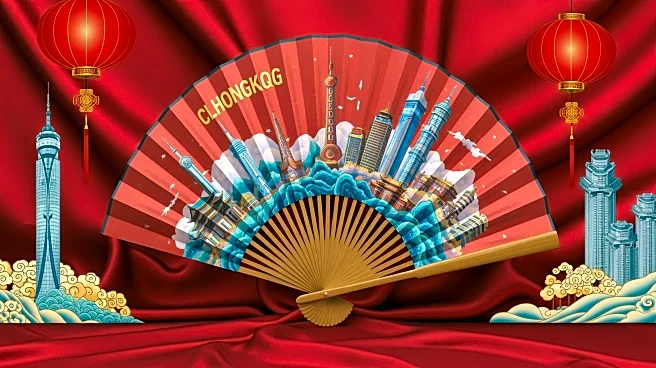What's Happening?
Ryan Chen, a business manager from Chongqing, China, has gained viral fame for his uncanny impression of President Trump. Chen uses this talent to promote his hometown and Chinese culture on social media
platforms like Instagram and Douyin. His videos, which avoid political content, showcase the local cuisine and attractions, aiming to bridge cultural divides. Chen's popularity has grown significantly, with over two million followers, despite never having visited the United States. His Trump impression began as a dare, which led to a viral video, and he now hopes to pursue acting full-time.
Why It's Important?
Chen's viral success highlights the power of social media in transcending cultural and geographical barriers. By using humor and impersonation, he offers a unique perspective on China, appealing to audiences both domestically and internationally. This approach not only promotes tourism but also fosters a sense of global connection, demonstrating how entertainment can serve as a diplomatic tool. Chen's story underscores the potential for individuals to influence perceptions and build bridges between nations through creative expression.
What's Next?
Chen is considering winding down his day job to focus on acting, leveraging his newfound fame. He also dreams of visiting the United States, particularly New York, to experience the culture that shaped President Trump. This ambition could further expand his influence and provide new opportunities for cultural exchange. As Chen continues to grow his online presence, he may explore collaborations or media projects that capitalize on his unique talent and international appeal.
Beyond the Headlines
Chen's success raises questions about the role of impersonation and satire in international relations. His ability to mimic a political figure without engaging in political discourse suggests a new form of soft diplomacy, where humor and entertainment can foster understanding and goodwill. This phenomenon may inspire others to use creative talents to navigate complex geopolitical landscapes, highlighting the evolving nature of cultural diplomacy in the digital age.










